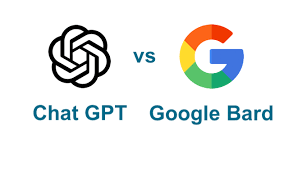
Introduction
In the ever-evolving area of synthetic intelligence, conversation models have garnered massive attention for their capability to generate human-like text responses. Two distinguished fashions in this area are ChatGPT and Bard. ChatGPT, advanced with the aid of OpenAI, is based on the GPT-three structure, while Bard, created by using EleutherA, represents the latest entrant into the conversational AI landscape. In this blog submission, we will complete an evaluation of ChatGPT and Bard, exploring their strengths, and weaknesses, use instances, and potential implications for the destiny of AI-powered conversations.
Understanding ChatGPT
ChatGPT is a sibling version of GPT-3, evolved by OpenAI. It excels in herbal language information and era, making it a flexible tool for diverse language obligations. It won a reputation for its capability to interact in human-like text conversations and provide contextually applicable responses.
Strengths of ChatGPT
1. Versatility:
- ChatGPT is a standard-motive version that manages various tasks, such as answering questions, creating content material, and being attractive in open-ended conversations.
2. Extensive Pretraining:
- It has been skilled on an extensive corpus of textual content from the internet, giving it a vast understanding base.
3. User-Friendly:
- ChatGPT is offered through consumer-friendly APIs, making it easy for builders to combine into applications.
4. Large-Scale Deployment:
- Due to OpenAI’s dedication to accessibility, ChatGPT is available for numerous use cases, from customer support to content material generation.
Read Our Blog: How Artificial Intelligence is Transforming the IT Sector
Weaknesses of ChatGPT
1. Lack of Consistency:
- ChatGPT’s responses sometimes need more coherence and consistency, which is central to incoherent or incorrect solutions.
2. Dependency on Training Data:
- The fine of ChatGPT’s responses relies heavily on the first-rate statistics it has been skilled on, which could occasionally result in biased or objectionable outputs.
3. Difficulty with Long Context:
- ChatGPT tends to battle maintaining context in extended conversations, frequently generating irrelevant or repetitive responses.
Introducing Bard
Bard, developed via Eleuthera, is a more recent entry into the sector of AI verbal exchange fashions. It is primarily based on the GPT-Neo structure and aims to triumph over some of the restrictions determined in earlier models.
Strengths of Bard
1. Improved Consistency:
- Bard is designed to produce extra coherent and contextually relevant responses, addressing one of the critical weaknesses of previous models.
2. Reduced Bias:
- Efforts were made to lessen biases in Bard’s responses, resulting in extra accountable and impartial outputs.
3. Fine-Tuning:
- Bard can be nice-tuned for unique datasets and responsibilities, making it adaptable for numerous use cases.
4. Scalability:
- Bard’s architecture is designed to be surprisingly scalable, potentially taking into consideration even larger models and advanced performance.
Weaknesses of Bard
1. Less Pre Training Data:
- Unlike ChatGPT, Bard has been pre-skilled on a smaller dataset, which might also affect its knowledge base and potential to generate numerous responses.
2. Limited Availability:
- Bard might also have limited accessibility compared to ChatGPT, which is available via OpenAI’s APIs.
3. Community Support:
- Bard may have a smaller consumer network and fewer developer assets than ChatGPT.
Use Cases: When to Choose ChatGPT or Bard?
ChatGPT and Bard’s choice relies on the specific requirements of a challenge or utility. Here are some situations where one version is probably favoured over the opposite:
Choose ChatGPT When:
Versatility is essential.
- If you require a version that can deal with an extensive range of language responsibilities, from innovative content material era to answering questions, ChatGPT’s versatility is a strong advantage.
Large-Scale Deployment:
- For applications that call for massive-scale deployment and accessibility, ChatGPT’s availability through APIs and a full-size person community may be beneficial.
General Information Retrieval:
- When the primary use case is fashionable statistics retrieval or informal verbal exchange, ChatGPT’s large expertise base may be extra appropriate.
Choose Bard When:
Consistency is prime.
- Bard’s focus on progressed coherence may be excellent if retaining consistency and context in responses is paramount.
Reducing Bias is vital.
- When handling sensitive subjects or clients through packages, Bard’s efforts to reduce biases can also align better with ethical considerations.
Customization is Required:
- Bard’s adaptability via first-class tuning makes it a feasible choice if you need a version that may be satisfactorily tuned for precise duties or datasets.
The Future of AI-Powered Conversations
As AI communique models like ChatGPT and Bard conform, the future holds promising improvements and challenges. Researchers and builders are actively operating to cope with Bias, inconsistency, and ethical issues. We will see even more specialized and successful fashions that cater to specific industries and responsibilities.
Conclusion
In the ChatGPT vs. Bard debate, there is no definitive “better” desire; as a substitute, the choice depends on the precise wishes of your project. ChatGPT excels at versatility and accessibility, while Bard specialises in consistency and bias reduction. By knowing the strengths and weaknesses of each version, builders and businesses could make informed decisions about which AI verbal exchange model aligns excellently with their goals. Ultimately, those models are shaping the future of AI-powered conversations and are poised to play a crucial position in various packages across industries.




Blog Comments
Frankey
September 16, 2023 at 7:47 pm
Thank you for sharing useful and important content.